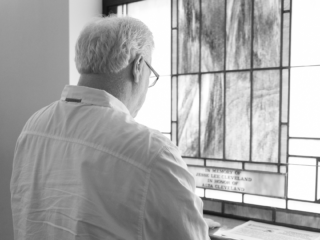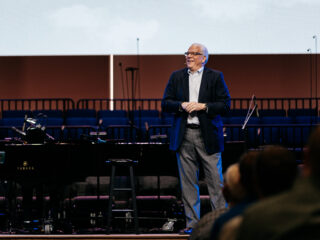According to a recent survey, Christianity will no longer be the majority faith in the United States. This, of course, elicited the usual and expected response from our Christian leaders. Pastors wrung their hands. Parents are worried about what kind of world their children and grandchildren will grow up in. Books have been written and released to instruct us on how we can “take America back for God.”
May I help? Sit down. Take a deep breath. Relax, and let me remind you: Christians have never been a majority in the United States.
Let me explain. A few years ago, if you asked any American if they were a Christian, they would say “yes.” By that answer, they wouldn’t mean that they had proclaimed Jesus Christ as their Lord and were actively trying to align their lives to His teachings. They meant that they generally agreed to the social constructs of good behavior. Their parents may have been Christian. They may have attended church when they were little and they may go to a Christian church on Easter and Christmas, but as the Bible-thumping pastor of my childhood would often say, “Just because you spend the night in a garage doesn’t make you a car.”
In our hyper evangelism at the end of the 20th century, we championed membership. Pastors were always introduced by the size of their church’s budget and the number of their members. We came to understand that members didn’t necessarily mean disciples. Drawing a large crowd wasn’t the same as winning our nation to Christ.
If there was any doubt, COVID-19 exposed the brutal realities. A lot of church members were nominally connected to their church. How do we know? They went home during the quarantine, and they never came back. They watched online for a while before they dropped out altogether. These folks attended, but they were never connected. They were members, but there was nothing in their life that would mark them as Christian. They are friendly and honest. They work hard and raise their children to be decent people, but again, there’s nothing about their lives that would make you identify them as Christian. Finally, these good people stopped checking the box next to the word “Christian” on the surveys, and the world says that Christianity is losing more and more people.
In reality, Christianity never had them.
My guess is that if you had asked the Apostle Paul about the future of Christianity, he would have been – let’s just say – guarded in his response. If you had asked John Wesley, he would have been the same way. According to some reports, Billy Graham was disappointed because, after all the sermons he gave, the world wasn’t any better. Being despondent about the future of Christianity is hardly a new phenomenon.
Yet, I’m not despairing. Actually, I’m hopeful and eager to see the new future God will give His people. COVID-19 blew everything up. Nothing is the same nor will it be the same after the pandemic. Those who are trying to get back to “normal” fail to understand the structural damage done to our culture. Think about it. The success of a local school was determined by parental involvement. Now, after the pandemic, parents feel betrayed by their school systems and educators feel parents are their enemies.
And churches? Here’s what we found out. About 80% of what we were doing as a church made no impact on our members or our community. The assessment was brutal for us to see, but we couldn’t deny its validity. Now we’re focusing on four things: prayer, discipleship (personal and group), worship, and a ministry that leads to gospel conversations. That’s it.
We’re now doing what we’ve learned from our international missionaries. All it takes to have church is a Bible, a teacher, and a group eager to learn. You can do that in a house, a barn, under a tree, in a school, or in a grand cathedral. Jesus tells us that His Father, the Master Gardener, always prunes the vines. What we failed to understand is that sometimes the vine is pruned all the way back to the roots. This is where we are. God is pruning His church to the roots. It’s painful, but it’s the only way new growth happens. I’m eager to see what new things God will bring forth from His old vines.
As for being in the majority, we were never intended to be the majority. When Jesus said we are the salt of the earth, He didn’t imagine piles and piles of salt. He was thinking about a pinch, a couple of shakes. We’re never supposed to taste the salt in the dish. We’re supposed to love what the salt has done IN the dish. So it is with God’s people. It doesn’t take much to make a big difference.
So, my friends, hang on. God is up to something. Make yourself useful to the Kingdom. Looks like God’s getting rid of everything that’s not. The pruned branches will flourish with new life and a great harvest. God is working. Find your place and get to work with Him.









